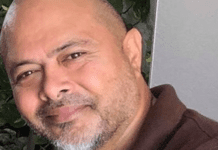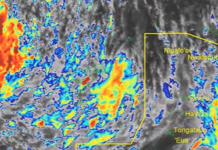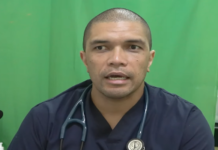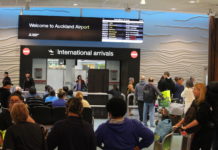By 1news.co.nz
Ukraine’s President Volodymyr Zelensky said overnight he would be ready to give up the presidency if doing so would achieve a lasting peace for his country under the security umbrella of the NATO military alliance.

Speaking at a forum of government officials in Kyiv marking the three-year anniversary of Russia’s full-scale invasion of Ukraine, Zelensky said, “If to achieve peace, you really need me to give up my post, I’m ready.”
Responding to a journalist’s question on whether he’d trade his office for peace, Zelensky said, “I can trade it for NATO.”
His comment appeared to be aimed at recent suggestions by US President Donald Trump and Russian President Vladimir Putin that elections should be held in Ukraine despite Ukrainian legislation prohibiting them during martial law.
Earlier, Zelensky said Russia launched 267 strike drones into Ukraine overnight on Saturday, more than in any other single attack of the war.
Ukraine’s air force said 138 drones had been shot down over 13 Ukrainian regions, with 119 more lost en route to their targets.
Three ballistic missiles had also been fired, the air force said. One person was killed in the city of Kryvyi Rih, according to the city military administration.
The attack came as leaders in Kyiv and across Europe are seeking to navigate rapid changes in US foreign policy under President Donald Trump, who in a matter of days has upended years of firm support for Ukraine, leading to fears that he would join with Moscow to force a settlement to the war without involving Ukraine and its European backers.
Ukraine fears Trump’s policy shift toward Putin
Trump’s engagement with Russian officials and his agreement to reopen diplomatic ties and economic cooperation with Moscow marked a dramatic about-face in US policy.
Zelensky has expressed fears that Trump pushing a quick resolution would result in lost territory for Ukraine and vulnerability to future Russian aggression, though US officials have asserted that the Ukrainian leader would be involved if and when peace talks actually start.
Trump, however, prompted alarm and anger in Ukraine when this week he suggested that Kyiv had started the war, and that Zelensky was acting as a “dictator” by not holding elections, despite Ukrainian legislation prohibiting them during martial law.
Russia’s deputy foreign minister on Saturday said preparations were underway for a Trump-Putin meeting, a further sign that the Russian leader’s isolation, at least for the Trump administration, was beginning to thaw.

Reacting to the latest Russian attacks, however, Andrii Sybiha, Ukraine’s Minister of Foreign Affairs, said that the overnight attack “demonstrates that avoiding calling Russia an aggressor does not change the fact that it is one.”
“No one should trust Putin’s words. Look at his actions instead,” Sybiha said in a statement on social media.
Ukraine continuing dialogue with US over mineral deal
Ukrainian officials on Sunday discussed a deal that would allow the US to access Ukrainian rare earth minerals, a proposal Trump’s administration is pushing for but that Zelensky earlier declined to accept because it lacked specific security guarantees.
At the forum in Kyiv where Zelensky made the offer to give up his presidency in return for peace and NATO membership, his chief of staff Andrii Yermak said the government was considering investment opportunities both with the US and European countries “which includes minerals, their development and extraction”.
Yermak left the forum early along with Economic Minister Yuliia Svyrydenko for what he said were talks with US representatives on a potential deal. He said Ukraine’s mineral resources represent “a very important element that can work in the general structure of security guarantees — military guarantees and others.”
Yermak pushed back on the notion that Ukraine had rejected US proposals but said any agreement “must meet the national interests of Ukraine, and undoubtedly, must be interesting to our partners”.
Before leaving the forum, Svyrydenko said there are US$350 billion worth of minerals on Ukrainian territories currently occupied by Russia. This calculation, however, is partly based on geological maps dating back to 1940s and 1960s, she said, adding: “We have to conduct geological exploration and confirm the deposits we have on paper.”
Meanwhile, Putin in a special televised message Sunday praised Russian soldiers fighting in Ukraine for defending “their native land, the national interests and the future of Russia”.

EU ambassador signals more support for Ukraine coming soon

US proposes draft UN resolution on war in Ukraine

Ukraine war after three years — Russia seems to have time on its side
Putin used his speech, on Russia’s Defender of the Fatherland Day, to pledge greater social support for military personnel and new weapons and equipment for Russian forces.
“Today, as the world is changing impetuously, our strategic course for strengthening and developing the Armed Forces remains unchanged,” he said, adding that Russia would continue to develop its armed forces “as the essential part of Russia’s security that guarantees its sovereign present and future.”







